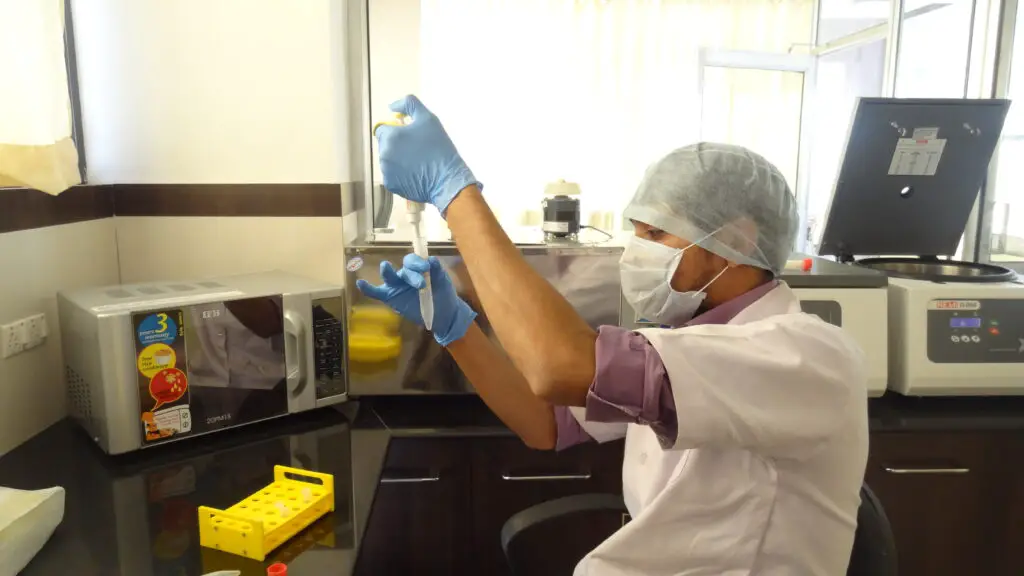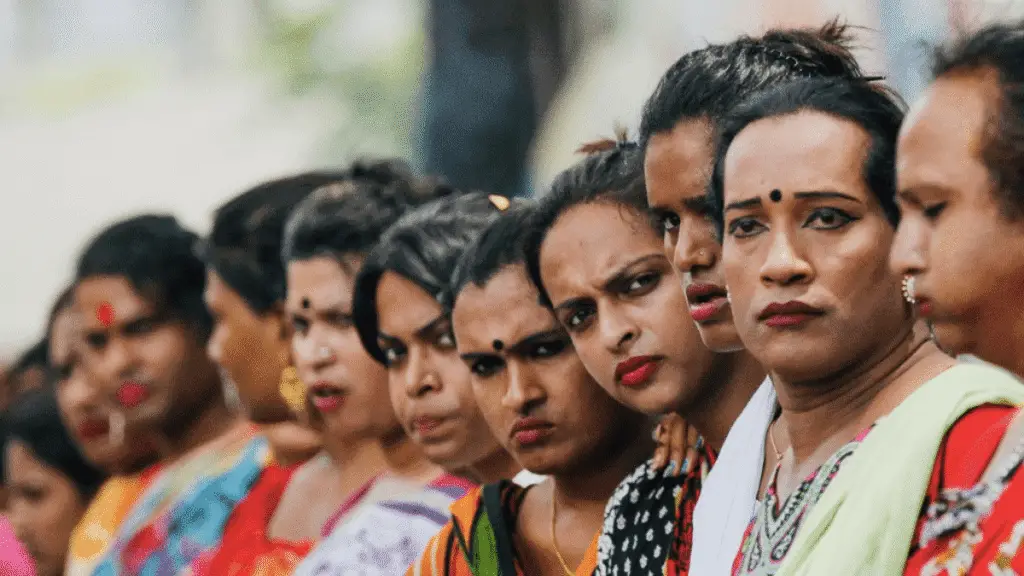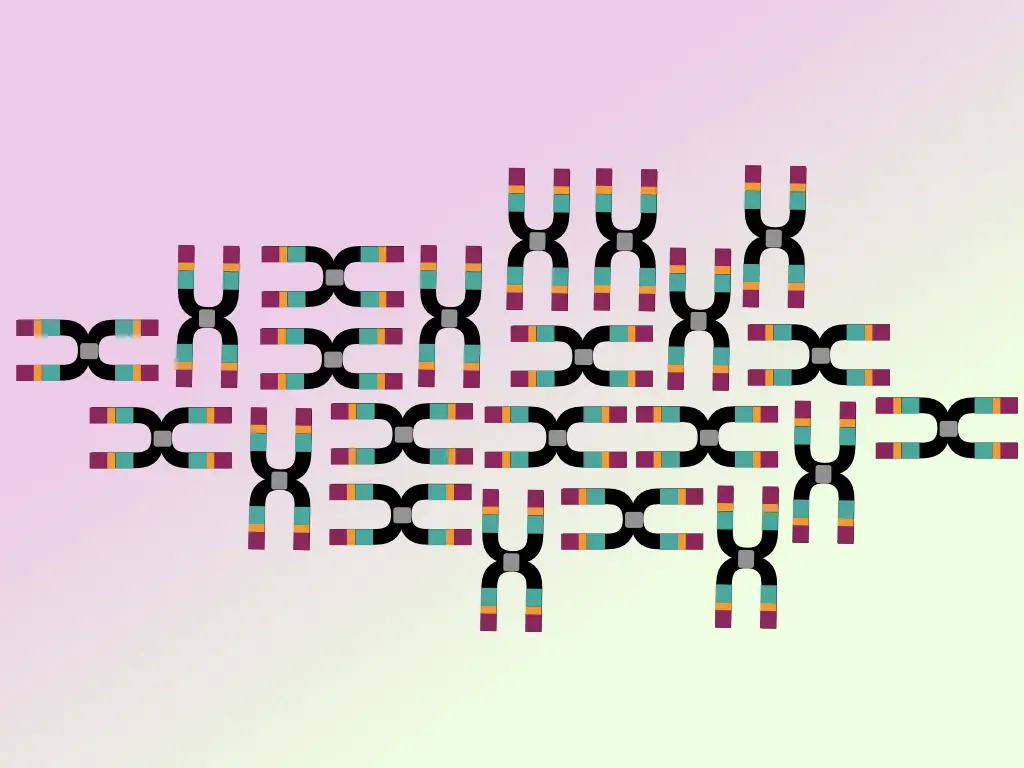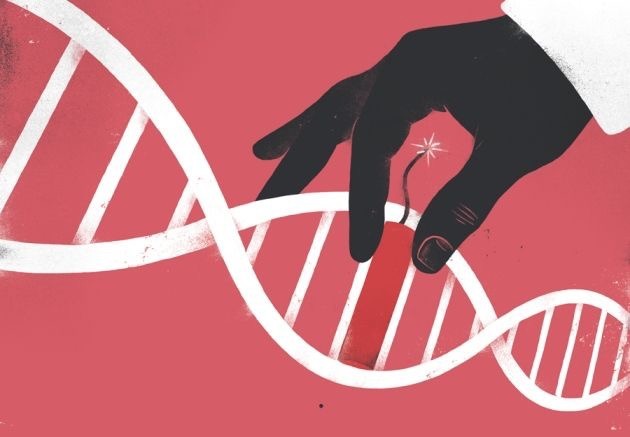What if we could understand the biology and the genetic factors contributing to gender-related problems? It can make society better for every gender. That’s exactly what came out of a genius scientist’s mind and was executed by this research scholar.
Meet Dr. Tushar Chauhan, our founder and director at Genetic Education. And this is his “scholar story” and how his work unfolded the genetics of eunuchism.
Key Topics:
Meet the Scholar:
Dr Tushar completed his PhD, entitled “Chromosomal and microarray-based aberration analysis in Eunuchs of India.” He published 7 peer-reviewed articles and worked for various research organizations in the past.
Currently, he is the director of Genetic Education. He is a scientist and scientific writer at the organization and also the director. His immense contribution to genetic research helped society understand the biology of eunuchism.
The original research:

His PhD journey started in 2016 along with two other fellow peers, Jigar Suthar and Mitesh Patel, under the guidance of Prof. Dr Rajesh Kumar Patel. They teamed for the Genetics Group of Gujarat Diagnostic Centre, Mehsana.
This team’s prime interest was in conducting original research that helps society. Among three different topics, Tushar Chauhan was allotted the topic of Eunuchs.
Eunuchs are the third gender population living in India, Bangladesh, Pakistan and Nepal. They are significantly different from other genders due to their spiritually and religiously positive behavior.
In India, they live in the sacred place known as the “Bahucharaji” in Gujarat. So the original idea was to uncover if they have any genetic problem and abnormalities that leads to such a condition.
There might be many domains to be studied, but they chose to investigate the chromosomes first and then DNA, if needed to understand the genetic, hormonal and other biological problems, if any.
The idea looked fantastic and simple to execute. Under the guidance of Dr R.K. Patel, Tushar Chauhan made an excellent research roadmap. What they did is, they collected the blood samples and performed karyotyping and microarray.
However, things were not as easy as they looked! It took them almost 7 years to execute the plan.
Challenges during the research:
The team was technically so sound. That’s not the challenge. In this, there are other challenges.
Sample collection was the most difficult task!
Meeting taboo-living people, explaining to them the research and thereby collecting the blood, all these steps were not only difficult but also dangerous.
They would occasionally attack, refuse to give samples and even threaten the team. Sample collection took the longest time during this research.
Another challenge was technology! There was no substantial research available that helped to choose the technology or technique for the research. It was like ‘swimming in the ocean.’ The team didn’t know where to begin or what to choose.
The cost of the project was also another major challenge. The microarray technology used in this research was extremely costly in 2017 and 2018. The per-sample cost was around 15000 to 25000 INR.
And finally, collecting the meaningful data and correlating it with the existing research and phenotypes.
Related articles:
- Is Migraine Genetic
- 7 Rare Case Scenarios of Taste and The Genetics Behind Them
- 5 Traits You Won’t Believe Are Genetic
Key Findings:
After 6 years of extensive research, and the study of 36 eunuch samples. Dr. Tushar Chauhan found 2 XX male individuals. Meaning, phenotypically (by birth), patients were male and had female chromosomes.
In addition, a wide range of testicular and genital abnormalities were also reported in these two and other patients. To learn more about the report, you can read their complete research paper.
At that time, this was the first study to publish any ‘genetic basis of eunuchism’ and reported the sex reversal for the first time in this population in India.
However, his study doesn’t find any conclusive molecular mechanism behind this, as per their microarray and genome-wide analysis data.
How does this help society?
This research is important in developmental biology. The phenotype-genotype correlation helps understand the likelihood of gender-related issues arising in the fetus.
In addition, these findings also reveal whether the baby would have sex differentiation and determination-related problems or not.
Eventually, this research could offer a biological understanding of the gender identity of eunuchs and contribute to improving their quality of life.
Future aspect:
The present study is a kind of pilot study in this area. Further research in other regions is necessary to validate the results. Such further studies help us to understand human biology, development and related abnormalities in a better way.
In addition, more studies will also provide novel therapies and drugs that help overcome gender-related developmental problems, particularly infertility, in the future.
Resources:
Chauhan, T. N., Patel, R. K., & Suthar, J. (2020). Cytogenetic and Microarray Analysis of Eunuchs. International Journal of Science and Research, 9(8), 681–686.





